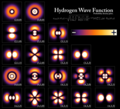Classical mechanics is a physical theory describing the motion of objects such as projectiles, parts of machinery, spacecraft, planets, stars, and galaxies...
52 KB (5,830 words) - 08:18, 13 September 2024
In physics, mechanics is the study of objects, their interaction, and motion; classical mechanics is mechanics limited to non-relativistic and non-quantum...
22 KB (2,731 words) - 11:59, 23 October 2024
Classical Mechanics is a textbook written by Herbert Goldstein, a professor at Columbia University. Intended for advanced undergraduate and beginning...
14 KB (1,676 words) - 18:52, 3 October 2024
writings of Aristotle and Archimedes (see History of classical mechanics and Timeline of classical mechanics). During the early modern period, scientists such...
22 KB (2,569 words) - 05:41, 8 October 2024
Classical mechanics is a physical theory describing the motion of objects. Classical Mechanics may also refer to: Classical Mechanics (Goldstein), a 1950...
437 bytes (76 words) - 08:17, 13 September 2024
This is a list of notable textbooks on classical mechanics and quantum mechanics arranged according to level and surnames of the authors in alphabetical...
11 KB (899 words) - 14:00, 2 November 2024
paradigm, which includes classical mechanics and relativity. Likewise, classical field theories, such as general relativity and classical electromagnetism, are...
8 KB (1,017 words) - 00:51, 2 August 2024
quantum information science. Quantum mechanics can describe many systems that classical physics cannot. Classical physics can describe many aspects of...
99 KB (12,082 words) - 22:03, 5 November 2024
Classical mechanics is the branch of physics used to describe the motion of macroscopic objects. It is the most familiar of the theories of physics. The...
31 KB (1,069 words) - 05:57, 17 May 2024
The following is a timeline of classical mechanics: 4th century BC - Aristotle invents the system of Aristotelian physics, which is later largely disproved...
16 KB (1,952 words) - 06:05, 21 September 2024



